Uncategorized
-
 Science & Society
Science & SocietyMarried men are doing more cleaning and laundry than in the past
Some scholars argue that efforts to equalize the time men and women spend on housework has stalled. An analysis reveals slow progress.
By Sujata Gupta -
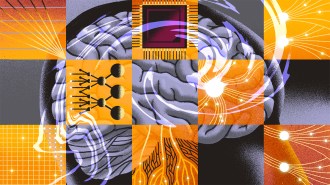 Artificial Intelligence
Artificial IntelligenceMore brainlike computers could change AI for the better
New brain-inspired hardware, architectures and algorithms could lead to more efficient, more capable forms of AI.
-
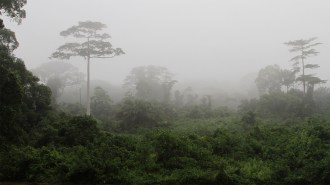 Archaeology
ArchaeologyHumans moved into African rainforests at least 150,000 years ago
This oldest known evidence of people living in tropical forests supports an idea that human evolution occurred across Africa.
By Bruce Bower -
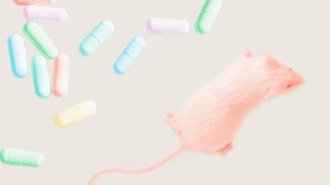 Health & Medicine
Health & MedicineCan probiotics actually curb sugar cravings?
Some companies claim that taking beneficial bacteria can reduce the desire for sugar. But the evidence comes from mice, not people.
-
 Life
LifeA new book chronicles the science of life in the air
Carl Zimmer’s Air-Borne recounts centuries of aerobiology’s greatest moments and mistakes.
-
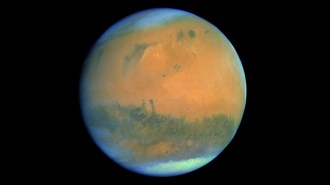 Planetary Science
Planetary ScienceAncient Mars wasn’t just wet. It was cold and wet
Mars may once have held enough water to fill oceans and form coastlines. The planet’s red dust contains water and likely formed in cold conditions.
By Skyler Ware -
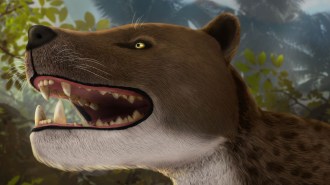 Life
LifeA skull found in Egypt shows this top predator stalked ancient Africa
Archaeologists uncovered a fossilized skull of an ancient sharp-toothed predator that likely hunted early elephants and primates.
-
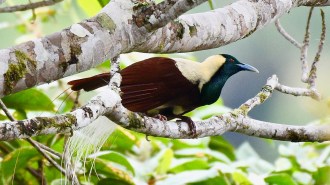 Animals
AnimalsHow fish biologists discovered birds of paradise have fluorescent feathers
A survey of museum specimens reveals that more than a dozen species of the birds sport biofluorescence in feathers, skin or even inside their throats.
By Susan Milius -
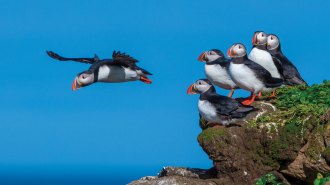 Animals
AnimalsHow a puffin patrol in Iceland is saving the iconic seabirds
Light pollution disorients young puffins. The Puffling Patrol helps them find their way to the sea.
-
 Health & Medicine
Health & MedicineHear patients with brain implants describe what it feels like
In the third episode of The Deep End, Jon shares how DBS surgery went and how he and other volunteers felt in the days and weeks afterward.
-
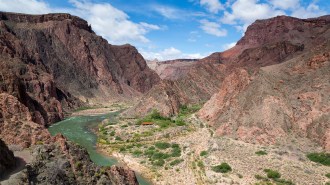 Science & Society
Science & SocietyFired federal workers share the crucial jobs no longer being done
Thousands of probationary federal employees received termination notices. Many were doing crucial work at science-related agencies.
By McKenzie Prillaman and Alex Viveros -
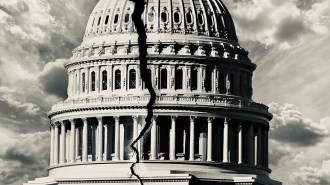 Science & Society
Science & SocietyWhy some chaos-seekers just want to watch the world burn
A political scientist explains how a confluence of personality traits and perceived status loss can encourage some people to generate chaos as a solution to their woes.
By Sujata Gupta